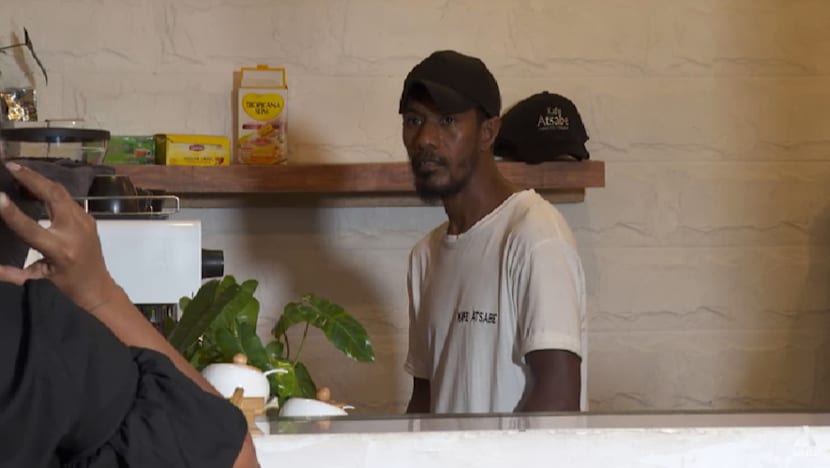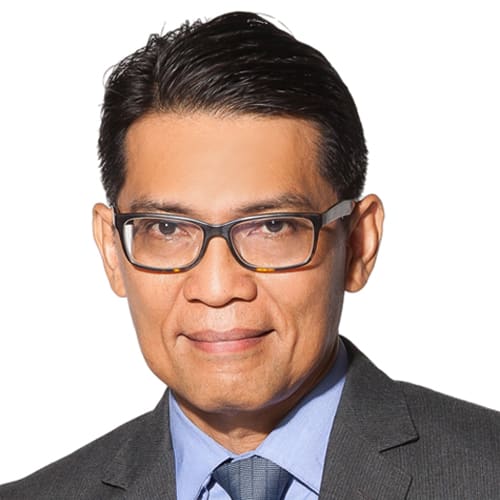Timor-Leste’s youth face tough job market as nation seeks to diversify its economy
With one of the youngest populations in the world, Timor-Leste faces mounting pressure to create employment opportunities for its youth.

Young Timorese at a recruitment centre in Dili.

This audio is generated by an AI tool.
DILI: At the 12 November High School in Dili, students listen attentively to a lesson about their country’s journey to independence.
None of them were alive when Timor-Leste gained sovereignty in 2002 after 24 years of Indonesian occupation.
With a median age of just 20, the Southeast Asian nation has one of the youngest populations in the world.
Education is seen as critical to unlocking the potential of its youths, but many schools continue to grapple with a lack of resources.
“We know that science and technology are advancing rapidly in this modern era, but if our facilities are still inadequate, we will face even greater challenges,” said Marculino Menezes Babo, the school’s principal.
“For example, we want to teach students about technology, but there are no computers, and the internet connection is unstable. That (is) a major challenge.”
HUNGRY FOR OPPORTUNITIES
The country is struggling to provide jobs for its people. Every day, young Timorese gather at recruitment centres in the capital Dili, hoping to find work overseas.
Milanoza Xavier da Costa, 24, applied for a job in South Korea in 2023 but is still waiting for an employer to take her on.
“I want to improve my professionalism, gain more experience and help stabilise my family’s finances,” she said.
“Since there are very few job opportunities here, I have no choice but to look for work abroad. Whatever the job is, I’ll take it … once I decide to go, I’ve already accepted the risks. Whatever work comes my way, I’ll just push through and do it.”
Economists say Timor-Leste must diversify its economy quickly and expand labour-intensive industries to provide jobs and reduce the country’s reliance on oil and gas revenues.
The country’s domestic production capacity is limited, with the value of its imports roughly two-thirds that of its gross domestic product, noted Joao Saldanha, founder of the Joao Saldanha University in Dili.
“We should be moving very fast … into the manufacturing and service sector,” he said.
“That’s the core of diversification that we’ve been talking about for a quarter century … there’s a lot of opportunities here to fulfil the domestic market first.”
Romualdo Antonio Soares da Silva, president of the Airport Administration and Air Navigation of Timor-Leste, added: “In the future, we should not rely too much on other countries.
“We must develop our own human resources, while continuing to work with advanced nations to guide and support us.”
In its 2026 General State Budget, the Timor-Leste government increased funding for its Human Capital Development Fund to US$20.6 million, up by US$3 million from the previous year.
The initiative supports more than 1,000 students through national and international scholarships in fields such as engineering, health, agriculture and public administration.
BREWING A NEW BEGINNING
In Dili, modern-style cafes are a familiar part of the city’s dining and social scene. The capital boasts a wide range of coffee shops and restaurants catering to diverse tastes and influences.
Among them is Cafe Atsabe, founded by coffee enthusiast Mariano da Costa Alves.

After being evicted from his home in Dili to make way for an infrastructure project, he used the compensation he received to start the business, turning a setback into an opportunity.
“My hope would be to expand Cafe Atsabe in Timor-Leste and also outside Timor,” he said.
“I would like to develop the coffee sector in Timor-Leste. We are trying our best to improve coffee production and processing to compete in the specialty coffee market.”
LOOKING TO THE FUTURE
Each year, the country celebrates Referendum Day on Aug 30, which marks the 1999 vote that paved the way for independence.
The streets of Dili come alive with parades and cultural performances, which many Timorese regard as a symbol of national unity.
Timor-Leste formally joined the Association of Southeast Asian Nations (ASEAN) last month as its 11th member, a milestone seen as an opportunity for the country to accelerate its economic diversification.
“I hope that in the future, more jobs can be created here in Timor-Leste, so our people won’t have to go abroad to find work,” said 24-year-old Dionesia Agnert Soares.


















